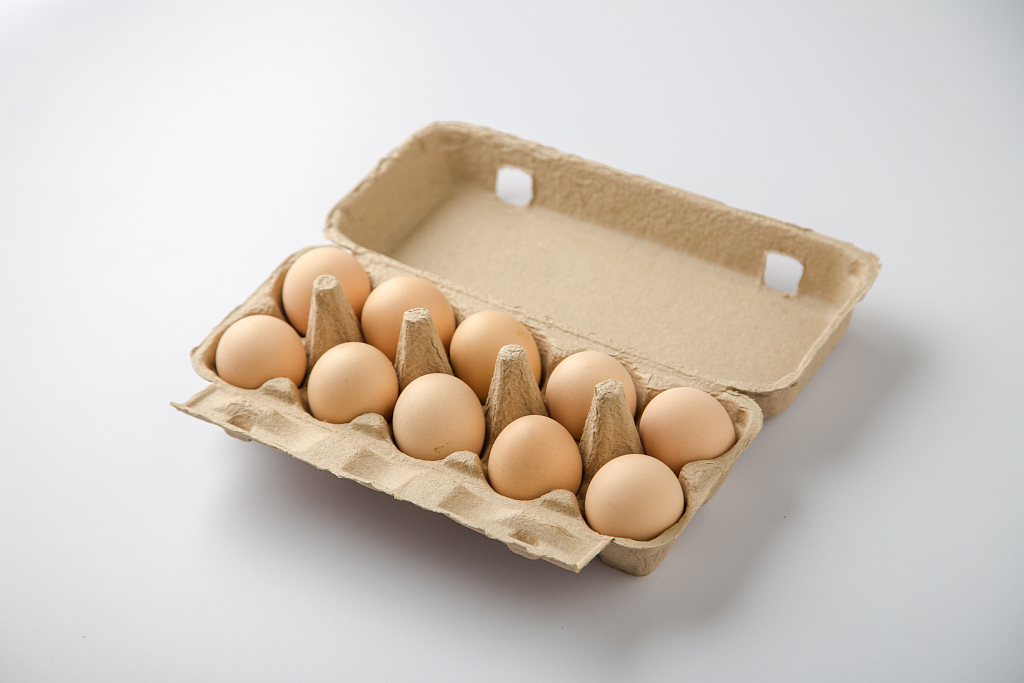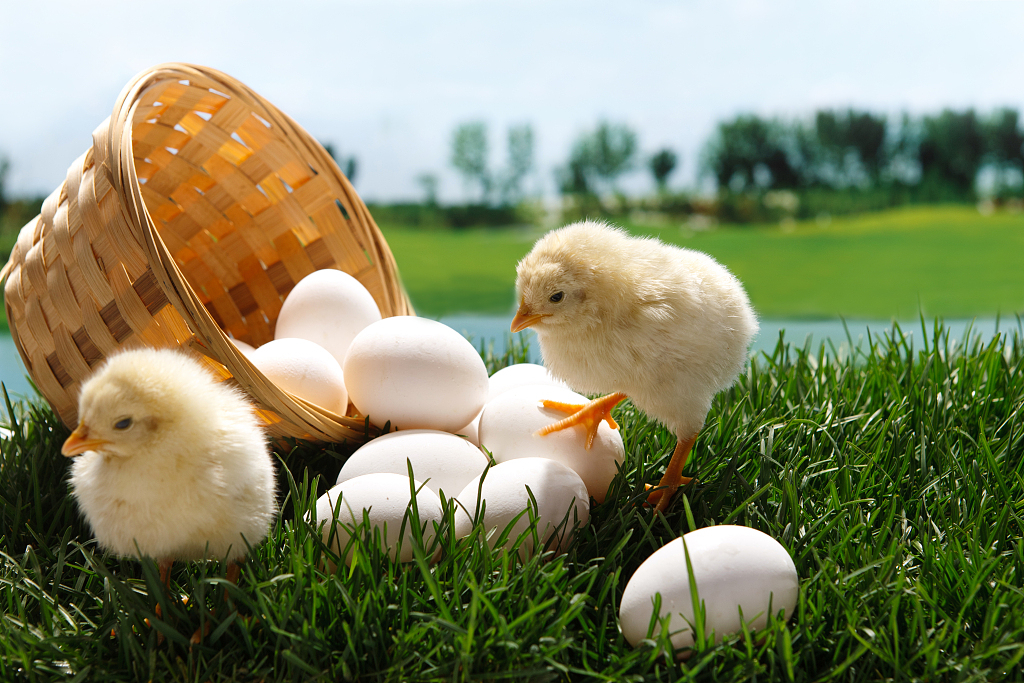The panic buying triggered by the global spread of the novel coronavirus has left many supermarket shelves empty. Now with people around the world staying at home and social distancing, one product is in short supply after rice and toilet roll: Eggs.

By Friday morning, the coronavirus had spread to over 200 countries and territories in the world, infecting over a million people and killing over 53,000.
Governments have ordered their citizens to stay at home and avoid gatherings.
Fearing a food shortage, people have been sweeping store shelves, but international agencies and food experts have warned the pandemic could seriously disrupt global food supply chains and send prices soaring.
After toilet roll, rice, eggs have become another hot product.
Supermarkets in European, southeast Asian countries and the U.S. have been pushed to respond to the egg shortage problem.
In the U.S., the Washington Post reported on Tuesday that egg prices have soared as the coronavirus has confined people to their kitchens and stoked a panic-buying frenzy. A quota of two dozen eggs per shopper has been adopted in many stores.
Similar restrictions have been put in place on egg purchases in the UK, Australia and Canada.
Last week, the government of Thailand ordered a seven day egg export ban due to insufficient supplies and announced on Monday that it will extend the ban for 30 days.
It is not surprising that when people cannot find eggs in stores, they have turned to the source of eggs: Chickens.
On Monday, the UK's Daily Mail reported that people in Britain have been warned to guard their chickens after reports of fowls being stolen amid the coronavirus outbreak. There have already been reports of chickens being taken from their coops in Leicester, Lincolnshire, parts of Yorkshire and Cardiff.
However, more people have chosen a legal route in their bid to secure a food source: Raising chickens themselves.
In the U.S., hatcheries nationwide are reporting spikes in orders as they scramble to keep pace with the newfound demand. Although these hatcheries are usually busy before the Easter holiday in April, they said that they have been sold out of chicks for at least a month now.

In Australia, chicken farms said they have been receiving more orders and inquiries on chickens, especially from potential buyers in cities and towns who have never had chickens before.
In the UK, similar things are happening: Consumers are flocking to buy chickens because they are unable to buy eggs in supermarkets. The situation has led to Tom Holland, the British Spiderman actor, to raise a set of chickens in his own garden.
Raising chickens consumes both time and money. Besides buying chicks, the additional costs of coops, feeders and nourishment can make it expensive, and it takes about 17 weeks for chicks to start laying eggs. Ready-to-lay hens could bring eggs much sooner, but they are more expensive.
Most chicken farms agree that the pandemic is a factor in people's decisions to be more self-sufficient in food sourcing.
(All photos via VCG)
(If you want to contribute and have specific expertise, please contact us at nature@cgtn.com)